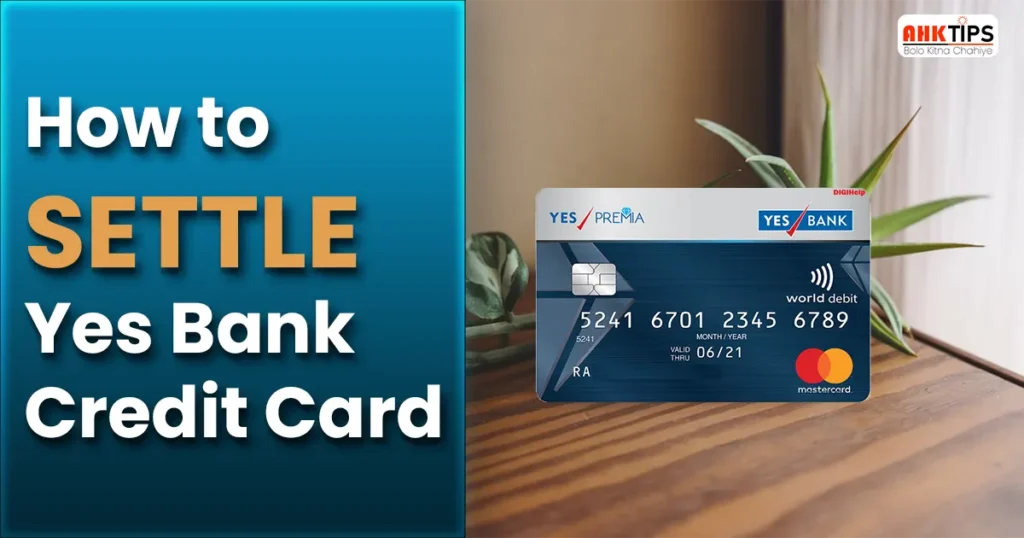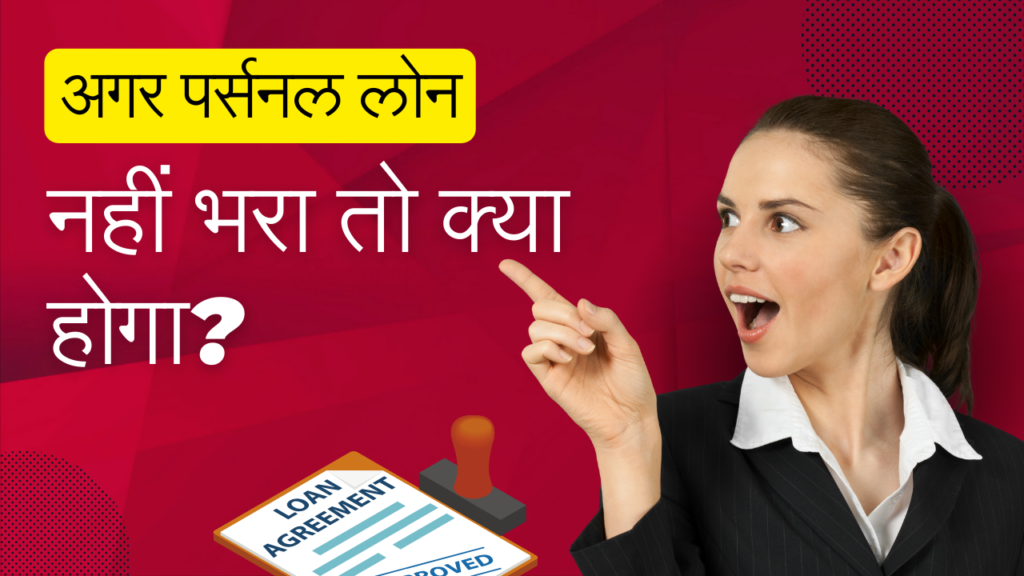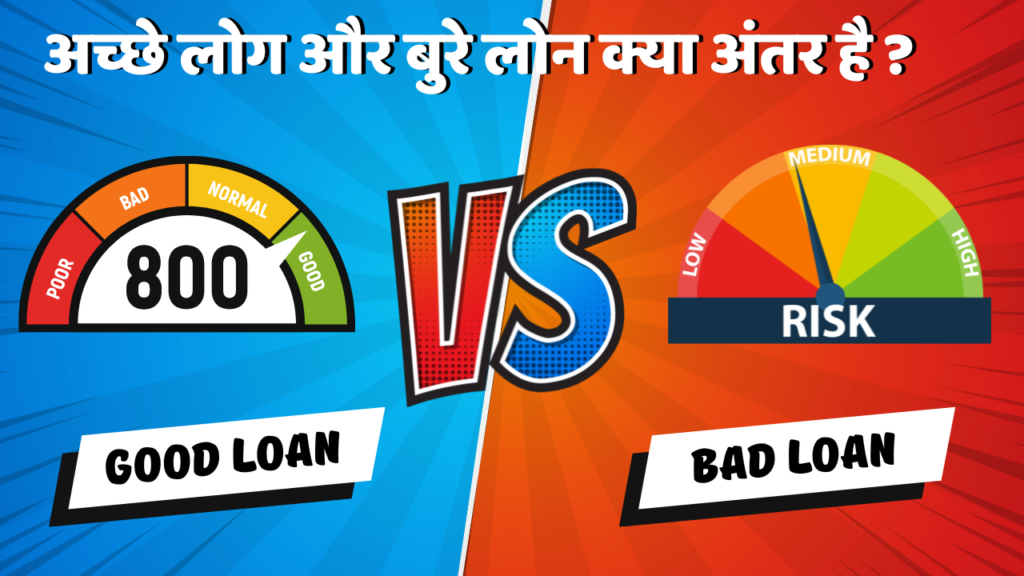In today’s fast-paced financial world, credit cards have become a popular tool for managing expenses. However, life can take unexpected turns, and many cardholders find themselves unable to repay their credit card debt. If you owe money to Yes Bank on your credit card and are struggling to keep up with payments, you may consider credit card settlement as a way to alleviate your financial burden. In this detailed guide, we will explore how you can settle your Yes Bank Credit Card debt, the steps involved, and the consequences of opting for this process.
What Does It Mean to Settle a Credit Card Debt?
Credit card settlement refers to a process where a borrower negotiates with their credit card issuer, in this case, Yes Bank, to pay a reduced portion of the total outstanding amount in exchange for closing the account. This is typically an option when the borrower is unable to make full payments due to financial hardship.
While settling the debt may provide immediate financial relief, it is essential to note that the process will negatively affect your credit report. The bank will report the account as “settled” rather than “fully paid,” which could lower your credit score.
Why Consider Settling Your Yes Bank Credit Card Debt?
Settling your Yes Bank credit card debt can be considered in the following situations:
- Job Loss or Income Reduction: A sudden loss of employment or reduced income can make it challenging to continue making regular credit card payments.
- Medical Emergencies: Unexpected medical bills can drain your savings and prevent you from meeting credit card obligations.
- Multiple Debts: If you are juggling multiple credit cards or loans, settling one credit card can ease your financial burden.
- Other Financial Hardships: Other unanticipated financial challenges, such as a family emergency or business failure, may require debt settlement.
Debt settlement can help you manage these financial difficulties by reducing the total amount owed and allowing you to regain control of your finances.
Steps to Settle Yes Bank Credit Card Debt
Here are the steps you need to follow when seeking to settle your Yes Bank credit card debt:
Step 1: Evaluate Your Financial Situation
Before contacting Yes Bank, take a thorough look at your financial situation. Make a list of your income, monthly expenses, and all other liabilities, including any other loans or credit card debts. This evaluation will help you figure out how much you can afford to offer for settlement.
It is also essential to gather documentation that demonstrates your financial hardship. This can include termination letters, medical bills, or proof of reduced income, as Yes Bank will require evidence before agreeing to settle.
Step 2: Contact Yes Bank’s Credit Card Department
Reach out to Yes Bank’s credit card collections or recovery department. You can either visit a branch or contact their customer care team through phone or email. Explain your financial difficulties and express your intent to settle the outstanding balance. You should also be ready to share details about your financial hardship during this conversation.
Step 3: Provide Evidence of Financial Hardship
Yes Bank will request documentation to verify your financial hardship before offering any settlement options. Here’s a list of documents that you may need to submit:
- Income Proof: Pay stubs or termination letters showing the reduction in income.
- Medical Bills: If medical emergencies are the cause of your financial difficulties, provide relevant bills and records.
- Bank Statements: To demonstrate your financial position and any existing obligations.
- Loan Documents: Details of any other outstanding loans that are adding to your financial stress.
Step 4: Negotiate the Settlement Amount
After reviewing your financial situation, Yes Bank may offer you a settlement amount. This is usually a percentage of your total outstanding debt, ranging from 50% to 80%, depending on the extent of your hardship and the bank’s internal policies. You can negotiate this amount if it is beyond your financial means, but ensure you have a realistic figure in mind when doing so.
Once both parties agree on the settlement amount, Yes Bank will provide you with a settlement agreement, which outlines the terms, payment amount, and timeline.
Step 5: Complete the Settlement Process and Obtain a No-Dues Certificate
Once you make the agreed-upon payment, your debt will be considered settled. Be sure to request a No-Dues Certificate from Yes Bank as proof that you have cleared the outstanding amount. This document will be crucial if there are any disputes in the future regarding the status of your debt.
Yes Bank’s Credit Card Settlement Policies
Yes Bank, like other banks, has specific policies and guidelines when it comes to credit card settlement. These include:
- Eligibility: You are typically eligible for settlement if your credit card debt is significantly overdue, generally after missing several months of payments (typically 90 days or more).
- Negotiation: The bank will negotiate a settlement amount based on your financial situation, usually requiring you to provide adequate proof of hardship.
- Payment Timeline: The settlement payment is usually required to be made in lump-sum or in a series of agreed instalments within a specific timeframe.
- Reporting: Yes Bank will report the debt as “settled” to credit bureaus, which will affect your credit score (as discussed in the next section).
Impact of Credit Card Settlement on Credit Score
While settling your Yes Bank credit card can relieve immediate financial pressure, it will negatively impact your credit score in the following ways:
- “Settled” Status: Once the settlement is completed, the account will be marked as “settled” rather than “closed” on your credit report. This signifies that you did not pay the full outstanding amount.
- Drop in Credit Score: The settlement will likely cause a significant drop in your credit score because lenders view settlement as a sign of financial instability.
- Long-Term Impact: A settled account remains on your credit report for up to 7 years, which can affect your ability to secure loans or credit in the future. Lenders may offer you credit at higher interest rates due to the increased risk.
Alternatives to Yes Bank Credit Card Settlement
Before proceeding with the settlement, consider the following alternatives that may help you manage your debt without damaging your credit score:
EMI Conversion
Yes Bank may allow you to convert your outstanding credit card debt into EMIs (Equated Monthly Instalments). This will enable you to pay off the debt in smaller, more manageable monthly payments over a specified period, often at a lower interest rate.
Balance Transfer
You can transfer your Yes Bank credit card balance to a low-interest credit card from another bank. This can reduce the interest burden, making it easier to pay off the debt in full without settling.
Debt Consolidation Loan
Consider applying for a debt consolidation loan. This loan allows you to pay off your credit card balance with one lower-interest loan, simplifying your repayment process and reducing your interest burden.
Financial Counseling
Seeking help from a financial counsellor or debt advisor may provide you with better options than settlement. They can help you create a debt management plan and negotiate with your creditors on your behalf.
Conclusion
Settling your Yes Bank Credit Card debt can be a practical option if you’re facing financial hardship and are unable to keep up with payments. However, it is essential to be aware of the long-term impact on your credit score and to explore alternatives like EMI conversion or balance transfers before choosing a settlement.
Be sure to negotiate favorable terms, maintain proper documentation, and always obtain a No-Dues Certificate upon completion of the settlement. By following the steps outlined in this guide, you can navigate the settlement process smoothly and reduce your financial stress while minimizing future risks.
Frequently Asked Questions (FAQ’s)
Ans: Yes, but Yes Bank usually offers settlements after your account has become delinquent for several months. You will also need to provide proof of financial hardship.
Ans: The settlement process typically takes between 30 and 90 days, depending on how quickly you and Yes Bank can agree on a settlement amount.
Ans: In most cases, Yes Bank includes late fees and penalties as part of the settlement. The settlement amount usually covers a percentage of the total outstanding balance, including any additional charges.
Ans: Yes, settling a credit card debt negatively impacts your credit score, which could make it more challenging to obtain future credit or loans. Lenders may also offer you credit at higher interest rates due to the increased risk.
Ans: If you can afford it, it is always better to pay off the entire balance to protect your credit score. Settlement should be considered a last resort when full repayment is not possible.













